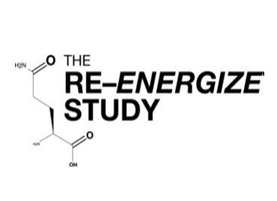Patients involved in two ground-breaking SRMRC trauma studies have reported that taking part in the research helped them deal with their injuries and gave them back a vital sense of control over their lives.
Patients, their families and staff were among around 150 people at the event, which was sponsored by QEHB Charity. It was held to share results from the Steroids and Immunity from Injury to Rehabilitation Study (SIRS) and Surgeon General’s Casualty Nutrition Study (SGCNS).

The two studies involved civilian and military patients who had sustained a serious injury, enabling researchers characterise and to compare the way these patients responded to their injuries.
During feedback sessions patients and the families said taking part in the research gave them a feeling of control, a crucial benefit given the often life-changing nature of serious trauma, including amputations and serious head injuries.
Many also said being part of the research gave them a feeling that something good was coming out of their misfortune, another important aspect of their psychological recovery.
The event included presentations by Col Kevin Beaton, the Commanding Officer of the Royal Centre for Defence Medicine, and Professor Sir Keith Porter, the Director of the NIHR Surgical Reconstruction and Microbiology Research Centre (SRMRC). SRMRC programme manager Dr Karen Piper and research practitioner Conor Bentley also spoke at the event. The SRMRC, based at the Queen Elizabeth Hospital Birmingham, was established in 2011 to bring into the NHS the lessons learned from treating injured military personnel.
Another speaker was Dr Jo Fallowfield, who explained how the SGCNS had begun with pre-deployment tests on a group of Royal Marines. Several of those marines were injured in Afghanistan, and tests carried out after their injuries enabled researchers to look at weight loss and nutrition status before and after the injury.
Major Mark Foster provided an outline of both studies, highlighting a range of systematic responses to trauma; such as muscle wasting; protein excretion; the ability of the patients to fight infection and the stress response after injury.



